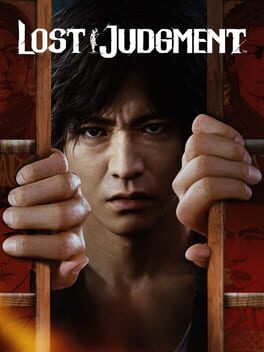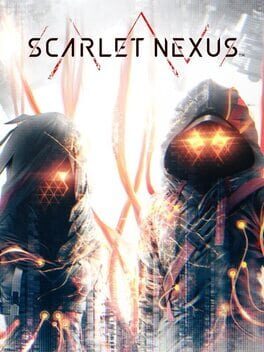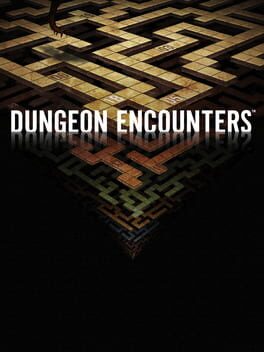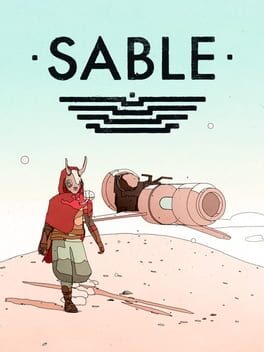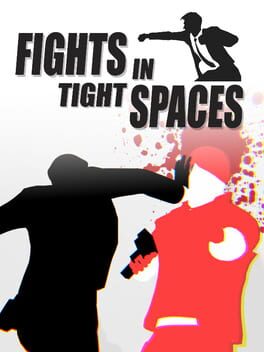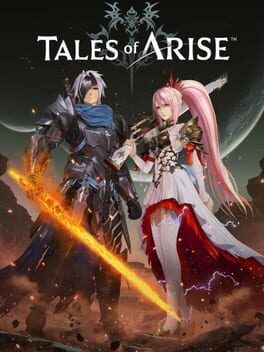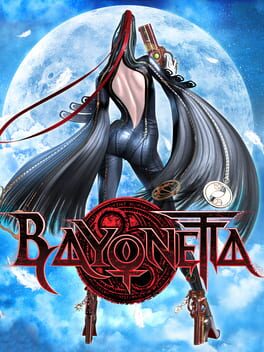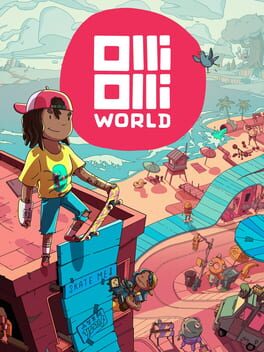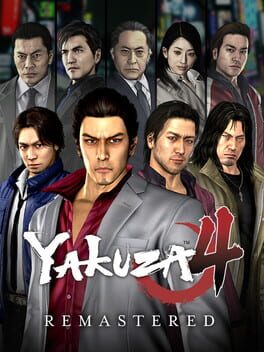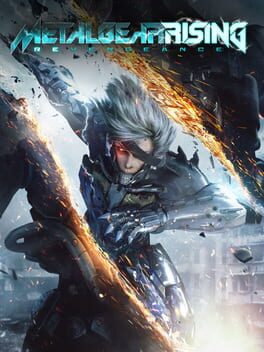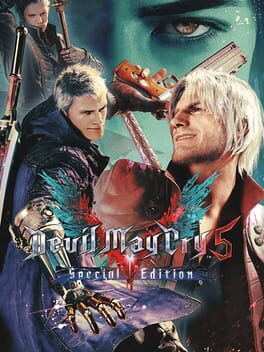TheBored23
2021
Lost Judgment is a step up from its predecessor in almost every aspect: the already-fun combat has been given greater depth, side content is surprisingly expansive, and much of the tedium has been removed. Moment to moment, it's as fun to play as these games ever have been.
The one thing I can knock it for is that the story and writing didn't achieve the same impact for me as other games from RGG Studio; it feels like it's already played its biggest surprises well before the main plot wraps up. There are still great moments along the way, but it falls short of being a perfect package.
The one thing I can knock it for is that the story and writing didn't achieve the same impact for me as other games from RGG Studio; it feels like it's already played its biggest surprises well before the main plot wraps up. There are still great moments along the way, but it falls short of being a perfect package.
2021
Scarlet Nexus is a story-heavy game that is very anime. Normally, this would put me off, but I found the combat and the setting interesting enough to stick with it. The game does a smart job of not just providing you with a variety of abilities, but giving you reasons to use them all. Even if I had favorite approaches, I had to respond to the enemies I was facing.
After beating the game as Kasane, I wasn't up for playing through a second time as Yuito, but I'm not upset about the time I spent with Scarlet Nexus.
After beating the game as Kasane, I wasn't up for playing through a second time as Yuito, but I'm not upset about the time I spent with Scarlet Nexus.
2021
I have been consumed by Dread.
My first time playing a 2D Metroid game has left a remarkable impression on me. This is a game that, though it rewards and encourages exploration, nevertheless has an incredible forward momentum to it. New discoveries and abilities cascade upon each other, one quickly leading to the next. Boss fights provide a tough but fair challenge, and EMMI robots add tension to even routine revisiting of areas.
Verterans of the series might be able to point to areas where Dread is lacking; I cannot.
My first time playing a 2D Metroid game has left a remarkable impression on me. This is a game that, though it rewards and encourages exploration, nevertheless has an incredible forward momentum to it. New discoveries and abilities cascade upon each other, one quickly leading to the next. Boss fights provide a tough but fair challenge, and EMMI robots add tension to even routine revisiting of areas.
Verterans of the series might be able to point to areas where Dread is lacking; I cannot.
2021
I have gripes with Forza Horizon 5. Little quibbles, nitpicks that might make it more perfectly cater to my tastes. But mentioning them in the face of all the game gets right feels petty.
This is a visually gorgeous game. Its world is the largest and most fun to drive in the series. It embraces the creative tools that I felt were lacking in 4 at launch, making it the racing sandbox of my dreams. After 80 hours, I don't feel any desire to slow down.
This is a visually gorgeous game. Its world is the largest and most fun to drive in the series. It embraces the creative tools that I felt were lacking in 4 at launch, making it the racing sandbox of my dreams. After 80 hours, I don't feel any desire to slow down.
2021
Dungeon Encounters has extremely little interest in telling you anything about how its weird little crossword mazes work. And it's precisely that stubbornness that made me more interested in figuring it all out. I haven't finished the game, and I'm not sure I have the patience to do so, but I'm very glad to have played it.
2021
MLB The Show 21 allows me, at long last, to do the thing I've always wanted from a baseball game: make my own stadium. Beyond that, it is a satisfying baseball sim and a live game with mechanics that kept me hooked for a couple months.
Long-time players of the series might have reasons for frustration with this product, but as a newcomer, I was really impressed.
Long-time players of the series might have reasons for frustration with this product, but as a newcomer, I was really impressed.
2021
Sable immediately had me enamored; the art style is unique, the writing is surprisingly funny, and the exploration takes the right cues from Breath of the Wild. My enchantment faded, however, the more I played. The platforming never quite feels satisfying, and seeming bugs turned at least one puzzle from fun to frustrating. Performance issues, even on Series X, became such that I couldn't play for long periods without feeling a bit nauseated.
Sable deserves credit for the charm it had in its first hours, I just wish it had maintained that.
Sable deserves credit for the charm it had in its first hours, I just wish it had maintained that.
There have been a lot of these roguelike deckbuilders in recent years; Fights in Tight Spaces is the one that finally grabbed me thanks to its style and tactical dimension. Even in early access, this game had me hooked. One two-hour run at a time, I learned and honed my favorite approaches to its small-scale tactical battles.
Now that it has fully released, this is a polished, well thought out game that I won't hesitate to recommend.
Now that it has fully released, this is a polished, well thought out game that I won't hesitate to recommend.
2021
Tales of Arise turned out to be just the JRPG junk food I'd been craving. Examined seriously, there are some big issues here: the plot becomes an ideological mess, and some parts of combat just don't work the way you'd hope. And despite those flaws, I had a really good time with it.
Combat, across multiple characters, kept me engaged throughout, but what really struck me, and caught me off guard, was the way the writing clicked with me. I found myself invested in these characters and the world around them even after some of it stopped making sense. I don't regret sinking 50 hours into it one bit.
Combat, across multiple characters, kept me engaged throughout, but what really struck me, and caught me off guard, was the way the writing clicked with me. I found myself invested in these characters and the world around them even after some of it stopped making sense. I don't regret sinking 50 hours into it one bit.
2009
Bayonetta is a blast when it isn't taking itself seriously - which is most of the time. Both combat and the mission structure are well crafted to encourage replaying and mastery. It's intercut by scenes that tend to be outlandish, while Bayonetta herself is sarcastic without coming across as edgy. It's a fun arcade experience.
The complaint I'd lodge is that by the end of the game, I felt like I was using familiar combos like a crutch, and brute forcing my way through the boss battles that grew lengthier and lengthier (with mechanics often far removed from standard combat). But don't let my lack of skill deter you. This is an absurd, raunchy romp of a game that deserves to be enjoyed.
The complaint I'd lodge is that by the end of the game, I felt like I was using familiar combos like a crutch, and brute forcing my way through the boss battles that grew lengthier and lengthier (with mechanics often far removed from standard combat). But don't let my lack of skill deter you. This is an absurd, raunchy romp of a game that deserves to be enjoyed.
2022
OlliOlli World wooed me with its charm, but I fell in love with its challenge. Its best levels are layered and loop back around on themselves in a way that's reminiscent of 2D Sonic, and they dare you to replay them for optional objectives and higher scores. Mastering the game's mechanics is something I found deeply satisfying, and nailing the perfect run after dozens of attempts feels transcendent.
2019
I've played a lot of RGG Studio's games, including more recent ones, over the past two years, but Yakuza 4 still manages to feel fresh in their wake. The choice to tell the story across four perspectives is a bold one that I really appreciate, but the game also boasts some great music and a Kamurocho that is - literally - deeper than before.
Metal Gear Rising knows writers who use subtext, and they're all cowards. For as sharp as Raiden's blade is when you're slicing up enemies and the enviroment, the plot is a blunt instrument. There's a lot I enjoyed, especially the dynamic soundtrack, but my main experience was growing frustrated with repeated deaths in one combat encounter or another.
Two decades after its initial release, Majora's Mask still feels remarkably fresh playing it for the first time now. I loved Ocarina of Time as a kid, so this game comes with no small amount of tangential nostalgia, but the structure renders it unique from not just other Zelda games, but anything else I've played, too.
Each new discovery in the early stages of the game comes with a whole host of new questions for how it fits into the mechanical puzzle of the three day loop. The world and its characters are packed with personality and charm, though some of the grandeur is missing from its N64 cousin. By the end of my playthrough I'll admit to finding some of the repetition tedious, but that hardly takes away from a remarkable experience on the whole.
Each new discovery in the early stages of the game comes with a whole host of new questions for how it fits into the mechanical puzzle of the three day loop. The world and its characters are packed with personality and charm, though some of the grandeur is missing from its N64 cousin. By the end of my playthrough I'll admit to finding some of the repetition tedious, but that hardly takes away from a remarkable experience on the whole.
I have a lot of respect for Devil May Cry 5's approach to combat, which gives players a lot of tools and freedom to wreck enemies however looks coolest. However, my run through the main story felt a little hollow without picking up style points along the way. I was finishing levels without feeling like I did much to deserve it. I can tell there's a gem here, but it would've taken me more time than I had to truly unearth it.
